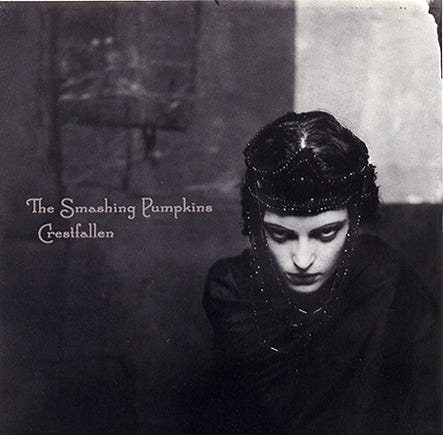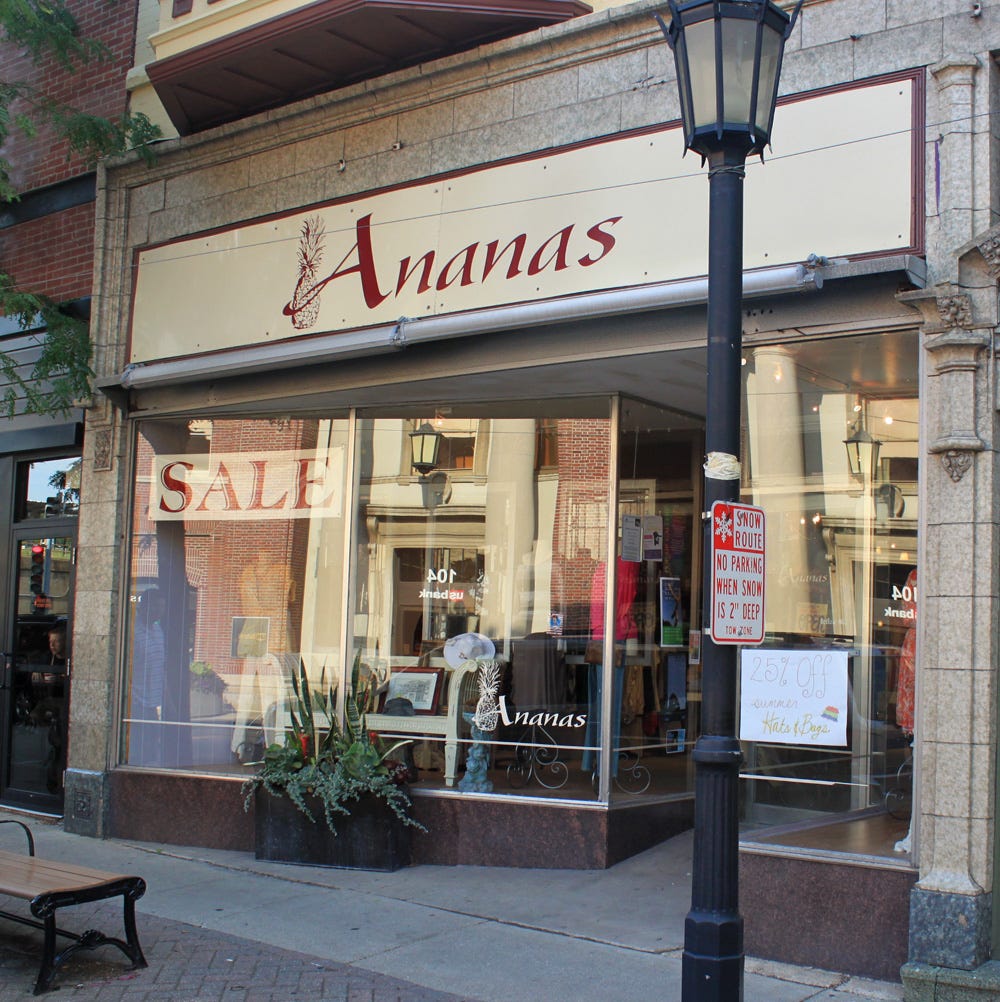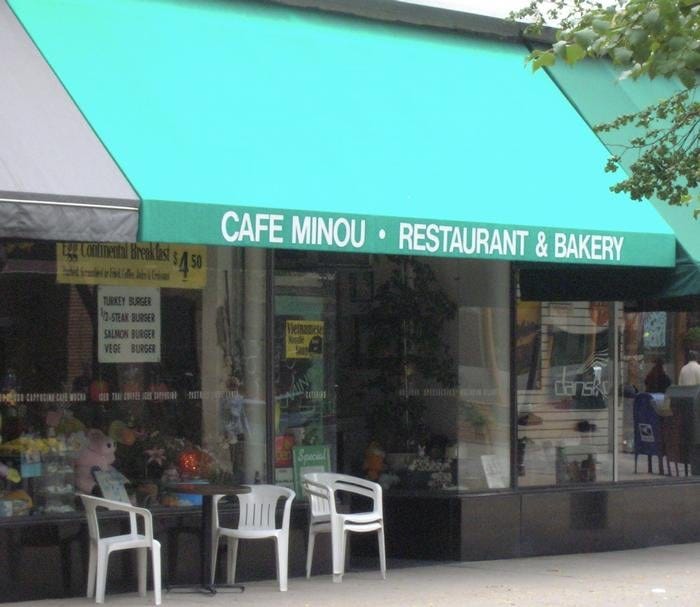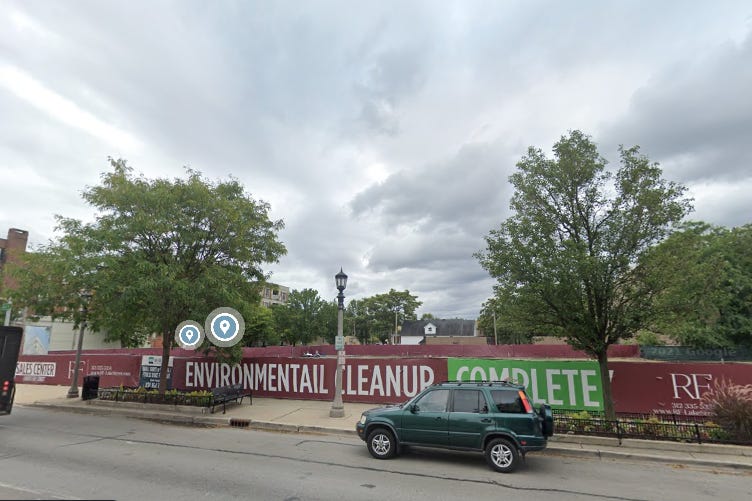Crestfallen
Adoration Revisited, part seven
Welcome to Not Knowing How: Adoration Revisited, a capsule newsletter by Lisa Locascio Nighthawk in sixteen parts. Names have been changed. The version of events is my own.
In this afterlife that is my life after my childhood, I sometimes describe my family as codependent. If you imagine away the vague, therapy-tinged negative association, codependency—per the American Psychological Association, “the state of being mutually reliant”—sounds positive, at least to me. My not-so-secret secret is that I have always thought I was lucky to be raised in a mutually reliant family. At least we really cared about each other! I protest, through tears.
The things we loved we loved together. Star Trek. Sting. Action figures. Christmas. Miami Vice. Swimming at the clear high blue noon of a summer day. Sade. Hedonism. What my parents called “PMs,”their term for talking about an event after you left, which was an abbreviation of “postmortems” but which I thought had something to do with M&Ms, so sweet was the candy of gossip. Phantom of the Opera.
My parents taught me how to be a rock and roll fan, my father by taking me to concerts and encouraging my desire to play the guitar, my mother by developing a special interest in my special interest in the Pumpkins. She asked me questions about the people in the band, about their appearances, about their behavior in their music videos, about my feelings about them, about everything.
Before long, and to this day, we were all on a first-name basis with Billy and his antics. The only time I met him by coincidence, instead of because I had waited in line for his signature, was in the lobby of the Shubert Theater in Chicago during the intermission of a 2005 performance of Spamalot! I spotted him but wasn’t going to approach. My parents made me.
Billy saw me coming. Gave me an out. “Are you talking to me because of my cool scarf?” he asked. It was pink, skinny, knitted. I should have said yes.
“I just wanted to let you know that your music has meant so much to me,” I said, syrupy, marble-mouthed, horrified.
He thanked me, looking bummed. Reduced from twenty years old to twelve, I beat a hasty retreat back to my family.
“Did he ask you to go hang out with him?” My dad wanted to know.
That evening we were seated near a girl, perhaps fourteen years old, who screamed her enthusiasm for the performers throughout the musical. My mom suffered from tinnitus and was extraordinarily sensitive to sounds and smells. At the end of the show, while the crowd was on its feet for the mandatory ovation, she turned around and screamed in this girl’s face. Vibing on my Billy shame, I did not notice any of this. So I was confused when, as the applause faded, I turned to see an angry man, the girl’s father, confronting my mother.“What is wrong with you?” he asked.
My mom beamed, unrepentant.
I was embarrassed. So embarrassed that I almost forgot my awkward exchange with Billy and didn’t look for him as we left the theater. Now I’m glad she did what she wanted. She always did. My mother was one of the kindest people anyone had ever met, but her kindness, like many women’s, could become a harness she chafed against. When she felt certain obvious rules were violated—a complex personal code both righteous and idiosyncratic, whose triggers included cruelty to the unhoused and to mothers with small children, and behavior she judged carelessly and unjustly loud—she could be filled with righteous anger. A flaming sword, a need for justice. Propriety was nothing to her then.
How I miss her.
Where are you when I need you around?
“Crestfallen” was supposed to be the third single from Adore, but it failed to chart. The band performed the song at the VH1 Fashion Awards, a performance I had forgotten but remembered as soon as I found this video, Seal’s weird joke about “the fashion capital of Illinois,” D’Arcy’s emphatic singing, Billy looking dapper and, to me now, so very young in his black coat and turtleneck.
I remember now that the Pumpkins were why I watched that award show at all. I had so eagerly anticipated their appearance, the first live broadcast of my fandom. It was held on October 23, 1998, three months after my dad took Moira and I to see the band at the New World Music Theatre. The beginning of eighth grade. That was why I saw Michael Stipe in his feather boa, an image I filed away for when I would need it, two years later.

Like so many Pumpkins songs, on paper “Crestfallen” seems comically maudlin. But the effect is different when you hear it. A good pop song refigures the obvious into a statement of universal meaning.
Who am I to need you now?
To ask you why?
To tell you no?
To deserve your love and sympathy?
You were never meant to belong to me
What did I do with my mother? Sat at the kitchen table and made fun of the overheated copy in the Coldwater Creek catalog. Went to the Italian restaurant that used to be next to the Lake Theater—I recall it was called Alonti, but I can find no evidence of the place online—for my favorite lunch, penne with chicken in cream sauce and an iced coffee. Drove downtown to the Art Institute, to Symphony Hall, to Water Tower Place and 900 North Michigan. Watched movies in the theater and at home, mainstream comedies and marquee action movies and foreign films, mainly francophone, that we rented at Blockbuster in the strip mall on North Avenue where on Fridays we went to Lotus, the Chinese restaurant, or got pizza at Old World. Maybe TCBY after.
Bought groceries at Dominic’s, Jewel-Osco, later Whole Foods. Nesquick brand fudgesicles, Land O’ Lakes whipped butter, Oberweis milk, green onions, avocadoes, tomatoes on the vine (or later, heirloom), blood oranges, green grapes, whole-grain mustard, jarred tomato sauce for pasta, frozen brown rice, Mint Milanos, very thinly sliced rare roast beef. Bone-in, skin-on chicken breasts, New York strip steaks, salmon filets, lamb chops. Frozen peas. Arborio rice. We shopped, recreationally, at stores that no longer exist: Fly Bird, a gift shop that sold ironic (and, in retrospect, sometimes racist) home goods made by the Italian brand Alessi, Ananas, a women’s boutique on Oak Park Avenue that sold batik print tops and dresses, strappy sandals, and delicate jewelry, and two stores whose names I can’t recall that stood beside each other on Madison Avenue in Forest Park. Almost every day after school she took me to Barbara’s Bookstore, where I perused the esoterica section for the latest Witch’s Alamanac. Our favorite restaurant was Cafe Winberie’s, once called J.B. Winberie’s, the cornerstone of the intersection of Oak Park Avenue and Lake Street. Only Filoni—a store we first encountered in Union Pier, Michigan, a town we used to visit on holiday, and materialized much later in Oak Park—outlived my mother.
Who am I to need you when I’m down?
And where are you when I need you around?
Your life is not your own
When I remember my life with my mother I count businesses that don’t exist anymore. My middle school rented the costumes for the annual musical from Razzle Dazzle, the costume store on Lake Street that exerted total pre-Spirit Halloween market dominance. There was a Dr. Marten’s store on Lake Street, close to a barely populated storefront with the haunting name WIG DAY, where I persuaded my mother to buy a wig for me in the last year of my life that my hair was untouched by dye. There was the seemingly abandoned “business college” on the Marion Street pedestrian mall, where we could eat at the French cafe Minou, which displayed the children’s book about a charismatic Siamese cat in its front window, or at our favorite Thai restaurant The King and I, where we ordered green curry and taro cake in a tranquil windowless room. After, we would visit Earthlodge, a new agey sundries store that sold a magnet purported to be the most powerful on earth.
All of these places are gone now. Researching them, I found the LinkedIn and Facebook profiles of their former proprietors. Proof that the life I remember happened.
And you may go, but I know you won’t leave
Too many years built into memories
Your life is not your own
In my mind it is winter at the intersection of Lake Street and Lathrop Avenue. Snow mounded on the curbs and packed gray slush riven with tire treads. Across the street from Saint Luke’s, where I attended several desultory years of CCD, stands a quick-service Mexican restaurant called Majada. Once upon a time, this was Annie’s, a fast food place run by a kind Korean family. Next door stood James Anthony Salon and Day Spa. When you called, the receptionists answered: “It matters that you chose James Anthony Salon and Day Spa. How may I direct your call?” Later they switched to “It’s a wonderful day at James Anthony Salon and Day Spa. How may I direct your call?” When I sat down to write this, I thought that James Anthony Salon and Day Spa still stood at 7607 Lake Street. But Google shows me that the building is long gone, replaced by a construction site with a massive banner promising ENVIRONMENTAIL [sic] CLEANUP COMPLETE!
It never occurred to me that I would live in my hometown as an adult. I just assumed my parents would always live in our house, that there would always be a space there for me. I would go on, out into the world, and they would be there, happy. By simply existing, and loving them, I would make them happy enough to keep living the life that made mine make sense.
Who am I to need you now?
To ask you why?
To tell you no?
To deserve your love and sympathy?
You were never meant to belong to me
What belonged to me? What did I belong to?
I spent much of the two years after my mother died training to be a psychic medium. One of my courses met once a week for three hours for five months. After the lecture, the teacher split us into pairs to practice on each other. The other students were strangers to me, and my experiences with them were mixed. Some were socially pleasant but psychically ungifted, some were bizarrely competitive. Some had the skill, like the woman who described the intersection of Lake and Lathrop to me.
This is how it works: we agree who would go first. The reader closes their eyes and enters the sitter’s energy. There are different ways of accomplishing this; I like to hold my hand out, as if for someone to take it, while I listen to the peal of my own tone and saw myself sitting in a massive conduit of my own color. I send, and see, my energetic body bridging out into the sitter’s energetic body, a movement like a spaceship expanding, transforming, to dock, and then I feel their realm, and I tell the sitter what I see.
When an energy comes through from the other side, the dead will show you images for the sitter. For that woman I saw a man’s hands and arms, his neck and chest, strong, thick, covered in black hair. I felt his love for her and his devotion to God and I understood that I inhabited his body. He—I—wore a shirt unbuttoned to show his collarbone. We walked through a beautiful jungle. When I described this to her, my partner said that the man who came through for her was her grandfather, who had died in the Caribbean before she could return to him again.
When she read me, she described a woman very carefully dressed, in beautiful clothes and makeup, her hair styled just so, walking down the street with a little girl. “They’re so happy, talking, the little girl is skipping behind the woman.” I recognized the location as Lathrop and Lake, where a tall clock stands, a block away from the Jewel-Osco, near where Todd & Holland Tea Merchants was once located.
“She says you were the only person who really liked spending time her,” my partner said.
Of course I was not the only person who liked spending time with my mother. But she had a knack for making me feel singular in our confidence, an innate coziness, a loving goodwill so powerful it had its own atmosphere.
When I am hit with grief, I try to understand it. Missing my mom often feels indissoluble from missing our home. The summer before fifth grade I engaged in “The Roosevelt Experience,” a weeklong camp held on a college campus on a small lake. When I arrived home early, having been evacuated out by another kid’s mother following a bout of food poisoning that led me to throw up at the center of the circle in which all of my new classmates were seated, I was met by our soft living room couch, the coffee table ready with my favorite snack of chocolate milk and Craisins.
I told my mom it felt like heaven. What I meant was it felt like her.
I can’t remember which Pumpkins songs my mother liked. Maybe “Tonight, Tonight,” an easy favorite, with its genre-bending strings and triumphant message. “1979” that made her cry with my father when it came on the radio.
The moodiness of the music, its goth feeling, she understood. She loved the soundtrack to the softcore TV show Red Shoe Diaries, especially its searching piano theme “Red Shoe Requiem,” which seems not to exist at all online. She played her own compositions on the piano in our living room, late at night, or sometimes by surprise in the middle of the day. Her special sorrowful sound, heavy and knowing as a brow.
“People had thought she was a dutiful daughter. They could not imagine two intelligent women who simply understood and loved each other.” — A.S. Byatt, “A Stone Woman.”
This week I thought it was strange that I wanted to write about my mom in response to one of the divorce songs on Adore. Then I learned that, about “Crestfallen,” Billy said: “My mother's death helped me to refocus my priorities. It showed me the true value of my life.”
Thank you for reading! This is the seventh of sixteen installments of Adoration Revisited, which will be released every Friday between December 2, 2022 and March 17, 2023. If you enjoy my newsletter, I’d be honored if you share it with your friends. And I’m always interested to hear about your obsessions and memories.










Emotions so complicated when landmarks of childhood have morphed or disappeared...except in memory. Lovely, inspiring journey of daughterhood/motherhood.
So beautifully written Lisa.